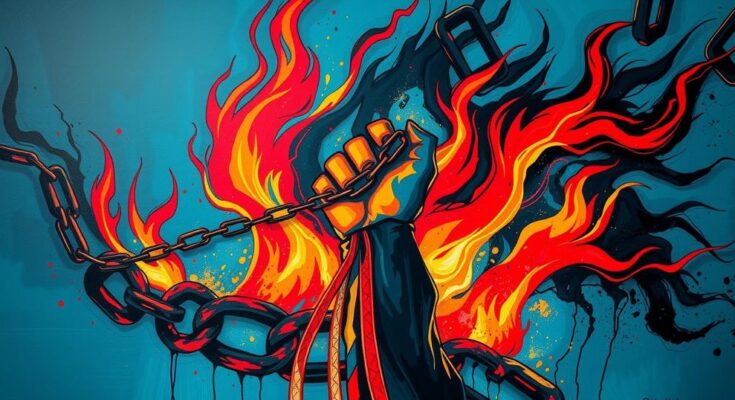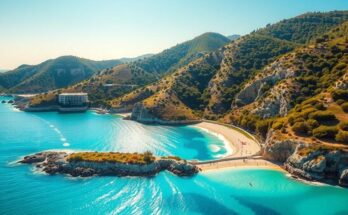Senior Iranian officials admit regime collapse risks due to economic crises and repression. Panama targets Iranian vessels in a sanctions enforcement effort, while the U.S. Treasury acts against Hizballah’s financial operations. The PMOI Resistance Units reported a significant increase in anti-regime activities. A government report dodges blame for protest violence, while corruption drives wealth transfer abroad. Political prisoner Varisha Moradi is denied medical care, and Iran’s crude oil shipments stall, reflecting broader challenges.
On March 29, 2025, the Iranian regime’s escalating repression to maintain control was underscored by the acknowledgment of senior officials regarding the threat to their power. Economic crises and foreign policy blunders have exacerbated this situation, prompting a clear strategy of intensified oppression of dissent among the populace, reminiscent of previous repressive tactics during the Pahlavi era.
In a significant move, Panama has revoked the registration of 128 ships in a clampdown on the shadow fleet that aids in oil exports from both Russia and Iran. Confirmed by Ramón Franco, director general of the Panama Maritime Authority, at least 70 tankers have already been deregistered, aligning with international efforts to reinforce sanctions against illicit energy trade.
The U.S. Treasury Department designated five individuals and three companies part of a Lebanon-based sanctions evasion network aiding the Hizballah finance team, which collaborates with Iran’s IRGC-QF. This network manages substantial revenue streams through various commercial projects, supporting Hizballah’s operations while enriching its members.
The PMOI Resistance Units in Iran marked a pivotal increase in activity during the Persian Calendar year 1403, engaging in over 39,000 anti-regime operations throughout 31 provinces. This marked both a quantitative and qualitative growth in their efforts against the ruling clerics, indicating a heightened willingness to confront the regime’s oppression.
The Iranian regime’s special committee has released a report absolving the government of responsibility for the deadly suppression of the 2022 protests. Instead of tackling the root causes of dissent, the report attributes the unrest solely to external pressures such as U.S. sanctions and economic hardships.
Majidreza Hariri, head of the Iran-China Chamber of Commerce, revealed that the ongoing corruption crisis within Iran has significant ramifications, with an estimated $25 billion leaving the country annually. This situation has pushed wealthy individuals to transfer their assets abroad, seeking stability amidst economic decline.
Varisha Moradi, a political prisoner facing death, continues to be denied urgent medical care for her worsening health conditions at Evin Prison. This neglect highlights a broader pattern of systemic disregard for the health and rights of political prisoners in the country, raising serious concerns regarding human rights practices in Iran.
Additionally, over 10 tankers carrying Iranian crude oil are reported stranded off Malaysia, indicating a slowdown in oil shipments, likely due to sanctions. These vessels face an uncertain future as they remain without buyers despite being suspended in limbo for over a month.
Supreme Leader Ali Khamenei has firmly rejected U.S. negotiation proposals, remaining steadfast in expanding Iran’s nuclear ambitions. The regime’s covert nuclear activities, exposed by the NCRI, highlight its intentions to acquire nuclear weapons and assert dominance regionally.
On March 23, supporters of the PMOI/MEK in Luxembourg organized an exhibition showcasing photos and literature about Iran’s human rights violations. The event aimed to raise awareness about the plight of political prisoners under the regime, as well as to express solidarity with the ongoing struggle for freedom in Iran. The attendees underscored their support for women’s resistance against oppression, encapsulating their message with the slogan “Woman, Resistance, Freedom.”
The developments occurring in Iran reveal a regime grappling with internal dissent, widespread economic corruption, and international pressures. The situation underscores the Iranian government’s reliance on repression to maintain power while simultaneously facing challenges from resistance movements. With the ongoing detainment of political prisoners and a poor human rights record, alongside sanctions applying pressure globally, the Iranian state finds itself at a precarious crossroads driven by both internal and external factors.
Original Source: www.ncr-iran.org




